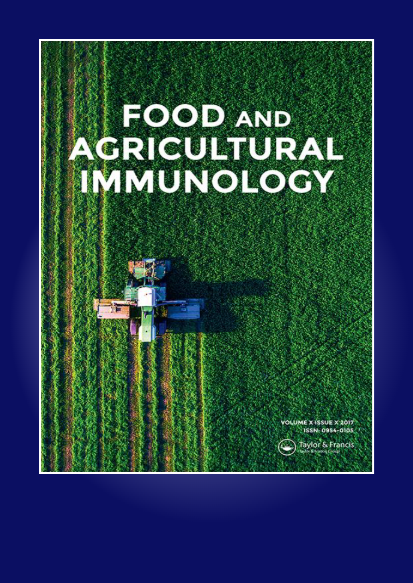Study on the mechanism of Lu’an GuaPian tea in treating heart failure based on network pharmacology and molecular docking
IF 2.1
3区 农林科学
Q3 CHEMISTRY, APPLIED
引用次数: 0
Abstract
ABSTRACT Objective The study was to investigate the possible mechanism of Lu'an GuaPian tea in treating heart failure (HF) via network pharmacology and molecular docking. Method The target of Lu'an GuaPian tea were screened. The GeneCards, NCBI, and DisGeNET databases were searched for HF targets. The GO and KEGG pathway analysis were used to obtain the targets and pathways. Molecular docking was used to verify the most likely targets and flavonoids. Results The Venn diagram revealed that AKT1, TNF, SRC, EGFR, ESR1, PTGS2, MMP9, and KDR were the top 8 target genes. GO and KEGG analysis suggested that Lu'an GuaPian tea could treat HF through PI3K-Akt pathway. Molecular docking predicted that compounds 1 and 7 have the highest binding affinity. Conclusion Lu'an GuaPian tea can be used to treat HF via PI3K-Akt signaling pathway, and the compound 1 and 7 were the most active lead compounds for regulating PI3K.基于网络药理学和分子对接的六安瓜片茶治疗心力衰竭机制研究
本文章由计算机程序翻译,如有差异,请以英文原文为准。
求助全文
约1分钟内获得全文
求助全文
来源期刊

Food and Agricultural Immunology
农林科学-毒理学
CiteScore
5.30
自引率
6.70%
发文量
52
审稿时长
2 months
期刊介绍:
Food and Agricultural Immunology is an international open access journal publishing original immunological research with applications in food, agricultural, environmental and veterinary science. Submissions describing the use of immunological techniques and methods are particularly welcomed.
The journal aims to expand our understanding of the interactions at the interface of food and immune systems including studies on:
-Development of diagnostic systems – all types of ligand-based assays, e.g. antibody, aptamer
-Application of ligand-based assays for the detection or identification of molecules of interest in food science, agricultural research, veterinary investigations and clinical systems relating to food allergy or sensitivity to agricultural chemicals
-Effects of food on the immune system
-Studies on allergy and allergic reactions
-Investigations into food allergies
-Development of allergen-free food systems
-Development of novel assay formats
-Applications of assay systems to the monitoring of food items in relation to safety and labelling
-Food quality issues, e.g. speciation, adulteration and contamination
-Comparisons between different analytical techniques
The journal publishes research and review articles and is essential reading for food scientists, immunologists and all those concerned with the interaction between food and immune systems.
 求助内容:
求助内容: 应助结果提醒方式:
应助结果提醒方式:


